One of the very best pieces of work in communicating education research is the What Makes Great Teaching report from 2014. Around this time Professor Rob Coe (@ProfCoe), one of the report’s central authors, was doing fabulous work sharing the key ideas from the report in various presentations. Here is one example:
As I shared recently on twitter, one particular slide from the presentation encapsulates a lot of the key thinking and is one I have found myself returning to and referring to countless times. In terms of getting ideas across, the ‘poor proxies for learning’ concept was something of a game-changer:
Of course it’s always risky sharing isolated slides out of context – but I did so hoping to reel people into reading the full set if they’d missed it – that’s what you always hope! However, it is obviously important to provide context. The key to this list is that it highlights some of the assumptions that are embedded in practices such as lesson observations and in some teachers’ minds when lessons might appear to be going well – despite the fact that the underlying reality can’t be seen: the learning that is actually happening is hidden in students’ minds.
Poor Proxies is a powerful prompt to probe further to establish whether learning has happened rather than to assume. It’s a reminder of the danger of focusing too much on task completion, immediate performance and behavioural compliance when they may or may not in themselves foster the learning you’re seeking. It has major implications for the (dubious) validity of lesson observations as the presentation explores in some detail.
The next slide in the presentation is this:
Again, of course, this needs unpacking. How can you tell if students are thinking hard? The main thing is to make sure the tasks they are set require them to think hard; actually – to require them ALL to think hard. If you run through the Poor Proxies list, it’s worth considering whether it’s possible for students to do those things without thinking hard – and the answer is Yes!
This all links to various other ideas in Prof Coe’s presentation and to ideas from Dan Willingham, Graham Nuthall, Dylan Wiliam and others – the need to think about thinking, ‘hidden lives’ and eliciting evidence of learning:
The genius of DT Willingham and WDSLS.
This week I received a delivery of Dan Willingham’s Why Don’t Students Like…
Re-reading Nuthall’s Hidden Lives of Learners. Insights from a classic.
“If we are to understand how teaching relates to learning, we have to…
Revisiting Dylan Wiliam’s Five Brilliant Formative Assessment Strategies.
In many of Dylan Wiliam’s talks and publications he references five ‘key strategies’…
Coe’s Poor Proxies have also helped me in thinking about the strategies that teachers might focus on to ensure that thinking hard is really happening across a classroom:
Is Everyone Thinking? What are they all thinking about? This is THE Key.
“Memory is the residue of thought”. As part of my work with Oldham College, this week…
Cold Calling: The #1 strategy for inclusive classrooms – remote and in person.
Based on my experience working with hundreds of teachers in numerous contexts, I’d suggest that one…
The #1 problem/weakness in teaching and how to address it.
I see a lot of lessons – hundreds of them in multiple contexts – and I’m…
For more detail, Prof Coe helpfully shared this video to help this discussion. Here he is talking about his ideas in 2013, as he shared on twitter. It’s a superb exploration of the nature of learning and the research that surrounds it:
And here is a full essay that explores the ideas further. The four recommendations are as relevant now as it was when it was published. :
- Think hard about learning
- Invest in effective professional development
- Evaluate teaching quality
- Evaluate impact of changes
Without question, Rob Coe is one of the greatest minds working in the field of educational research and it’s wonderful to have this record of his insights. More recently, now working with Evidence Based Education, he has contributed to this superb report: Great Teaching Toolkit – again, well worth your time, exploring the detail.

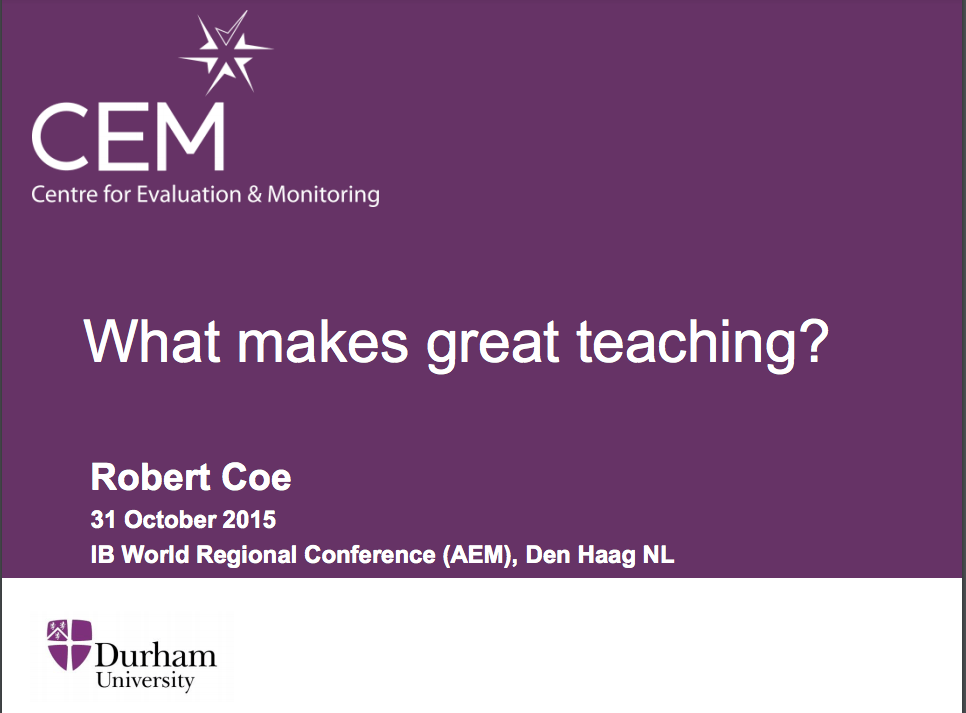
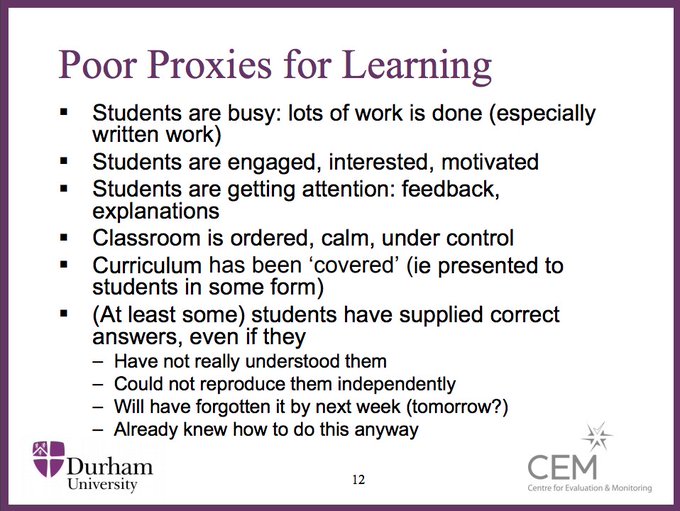
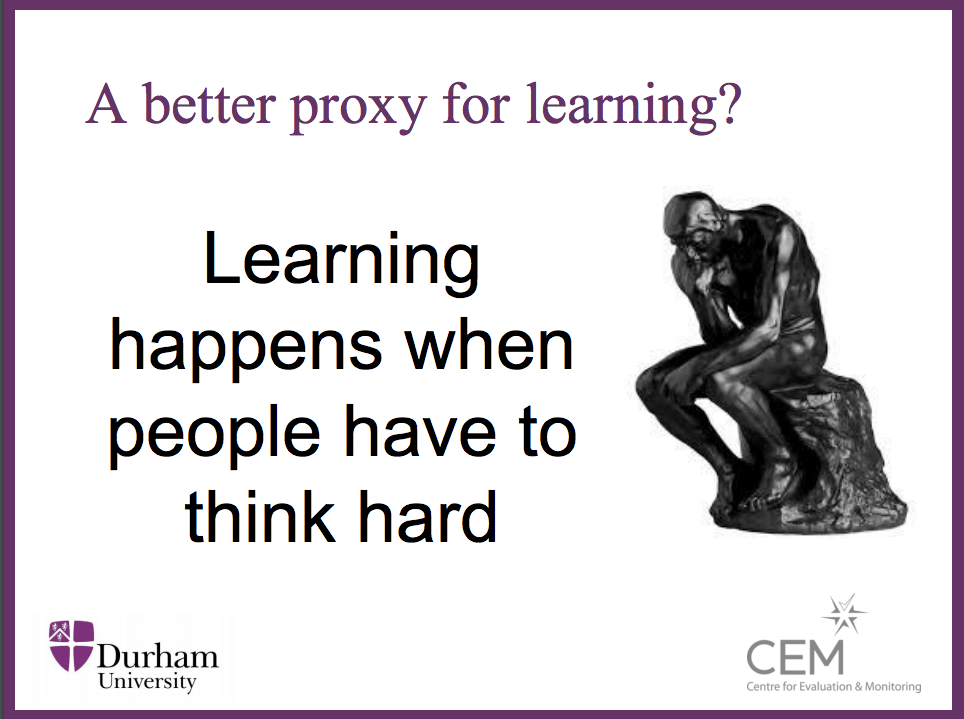






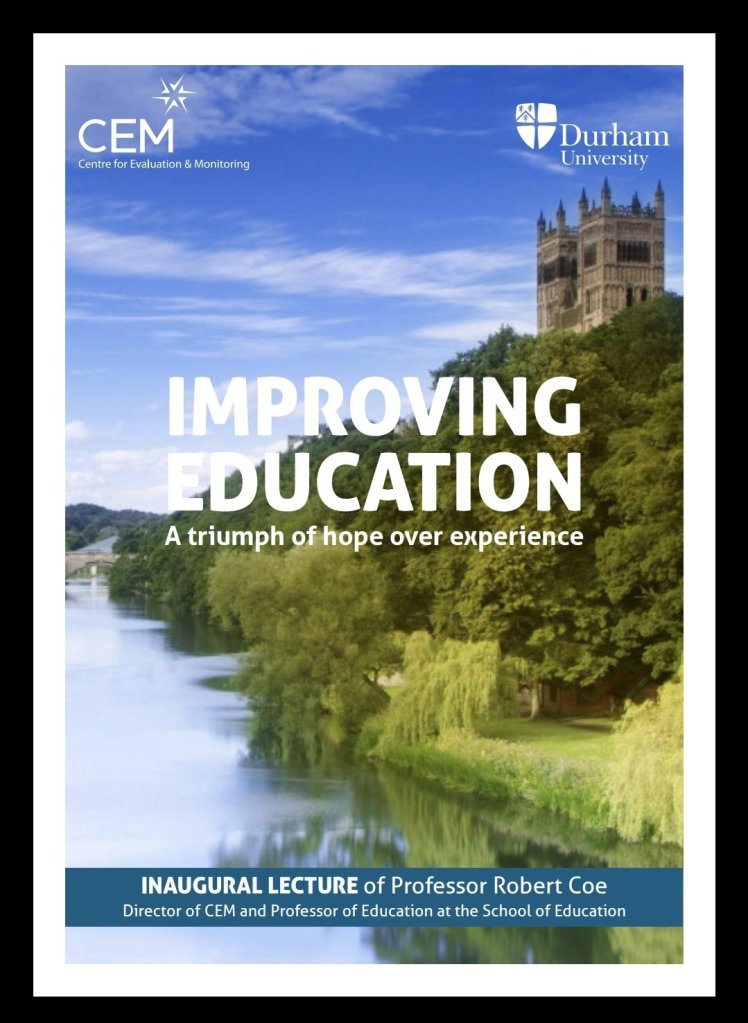
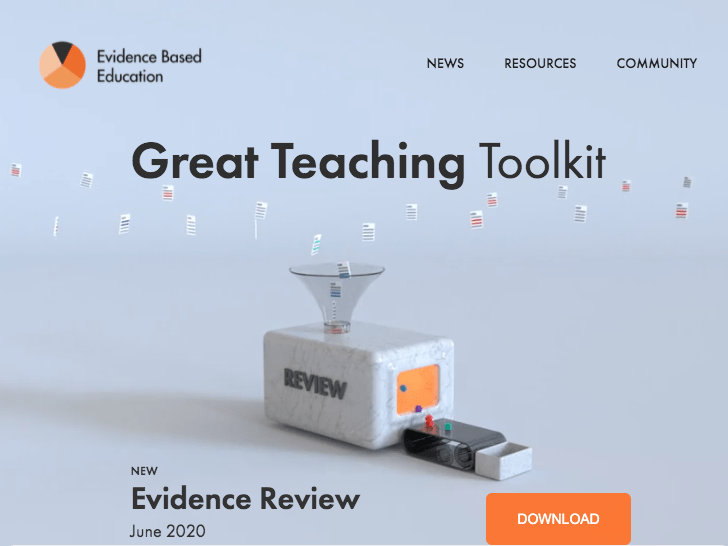
Hi
I am struggling to find a good self review for the teachers at my school. Can you suggest one? The end goal being that they review their areas of strength and areas of development so that they can work in quads and become masters of their strength and learn from others in their identified areas of development. Years ago I ran a CPD on Bandura’s self-efficacy model and somehow got my hands on or created a teacher standard version of this. Can you advise?
Many thanks
LikeLike